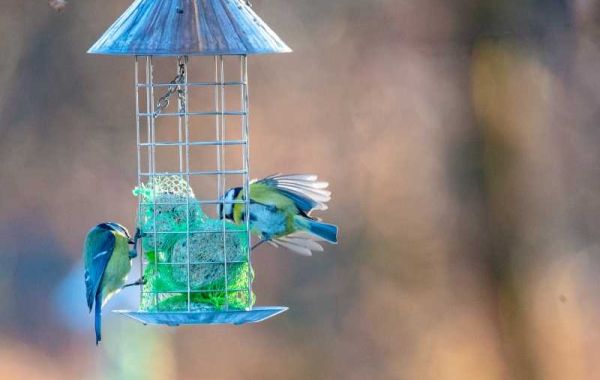Like a good proportion of Australians, you probably want to own a pet and turn your home into a friendly environment for your silent but affectionate pal. But sadly, most of us lead complicated lives that don't allow us to care for our pets properly. Want to enjoy the presence of a silent companion? In that case, a pet bird could be the solution. Unlike cats and dogs, birds require less intensive maintenance, are cheaper to own, and are perfect for allergy sufferers. When adequately trained, birds do not require much space. They are quiet and friendly animals that can fit into any family. Moreover, they are also loyal and form life-long connections with their carriers.
Birds are also brilliant animals. The intelligence of a parrot is equivalent to that of a five-year-old child. In addition, as a party trick, some birds, like Cockatoos, can imitate human sounds and tell you when they are happy or hungry. Do they understand what they're saying? Probably not. But they are nevertheless far easier to figure out than cats or hamsters. Pet birds come in various colours, sizes and nutritional preferences. And in Australia, the variety of bird species you can buy is impressive.
Do you want an easy-care pet? Then you might want to consider Cockatiels. Are you interested in a nectarivore? If so, Lorikeets should be an option. Birds have unique personalities, are perfect for families with young children, and can quickly adapt to living with other pets. But although they are easier to care for than other animals, birds need specialised pet supplies and products to develop healthily. From bird toys to cages and treats, the well-being of your feathered friend will depend on the time and effort you put into researching the best products for his growth.
What Kind of Bird Toys Can You Purchase?
Australians love birds. In fact, we have the fourth-largest number of pet birds on the planet. This translates into a well-developed bird supplies and accessories industry, allowing you to find any toy suitable for your pet. What toys are appropriate for your bird? For one thing, you could focus on chew toys created from safe materials that can positively affect the health of your companion's beak. Another option could be purchasing foraging toys that encourage your pet to search for their meal, like in the wild.
Do you want your little bird to be more active? If so, you can buy him a bird swing, which will distract him from external factors, or get him some bells or other sound-making toys to give him the stimulation needed for proper behavioural development. Are you the owner of a bird that is known for its ingenuity? Then, you could buy high-quality puzzle bird toys containing hidden compartments for placing bird treats. Simultaneously, a good idea would be to purchase shredding materials that birds can use for long-term entertainment. Toys for birds are cheaper than those for dogs or cats. And on the whole, their variety is impressive.
What Are the Advantages of High-Quality Toys?
Birds are long-living animals, with Cockatoos, for example, sometimes surpassing one hundred years old. But birds need stimulation to make their existence long and productive. Birds are intelligent, but social factors are significant to their development. Because they are not in their natural environment, birds need to be stimulated by problem-solving toys to avoid boredom and associated behavioural issues. Is your bird noisy, clucking, and refusing to eat? Then, they may not receive adequate stimulation, and you need to invest in toys that encourage engagement.
Bird toys are also essential for the physical health of our winged friends. Perches, swings or rolling balls can encourage movement and allow you to interact directly with your pet. Because they are social animals, birds should never be left alone and must be accompanied by a companion. But even this may sometimes not be enough. Do you want your feathered friend to feel at home? Then, a mirror placed in the cage might make him feel more comfortable and prevent unwanted behaviour. High-quality toys encourage physical and intellectual activity, prevent feather plucking, can make your bird happier, and improve their connection with handlers.
What Other Accessories Should You Consider?
Obviously, any bird owner should invest in cages that are the right size for their companion. A high-quality cage should be spacious enough for your bird to feel comfortable and move around but also small enough to be portable. In addition to the cage, you will also need to purchase perches made of natural materials, like softwood, and water and food dishes, which will enable your pet to be well-fed and hydrated. The last point is especially important, as birds, especially nectarivores, can suffer from dehydration and develop kidney problems without a constant water source.
Does your bird get easily spooked by external elements? Then, you could invest in a high-quality cage cover. Is your room quite dark? In that case, you should purchase low-intensity UV lights. And if you want to take your bird for a walk, as you would a dog, a bird harness would be an ideal accessory. Are you a person who travels often for personal purposes? If so, consider purchasing a bird travel case. Moreover, buying premium bird food and treats that meet your companion's daily nutritional needs will be essential.
Birds Are the Ideal Pets
Is your job demanding, and don't have the free time necessary to care for an active pet like a dog or a cat? Then, you might consider buying a pet bird. When properly socialised, birds are intelligent, affectionate and clean animals that can fit perfectly into any family and involve significantly less expenses than other types of pets. Birds are long-living, funny, trainable, require no exceptional investment, and the accessories necessary for their well-being can be purchased from most local pet shops.
What are these accessories? For one, your bird will need quality food, treats and shelter. Afterwards, you'll need to invest in quality bird toys that provide the physical and mental stimulation it needs. Birds are social and are best surrounded by members of the same species in an environment that provides enough stimulation to keep them from becoming bored. An inactive bird will develop destructive tendencies and become aggressive towards its handlers. Given that they can live well into their 70s, the lifestyle of your feathered friend must be active. And in this regard, acquiring toys should be on every responsible pet owner's list.








